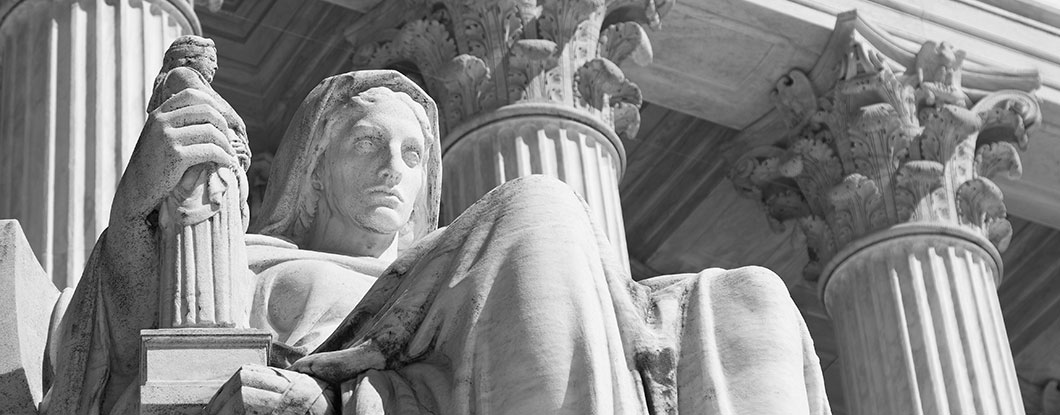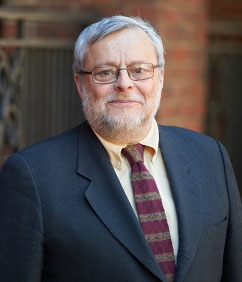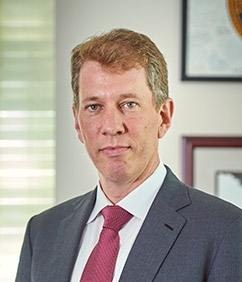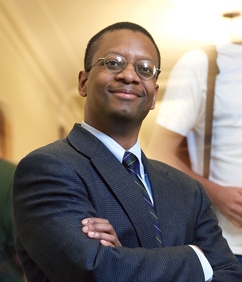A new oral history project from the Institute of Judicial Administration features distinguished judges and justices reflecting on their work
This fall the Institute of Judicial Administration (IJA) at NYU inaugurated a historical collection of interviews memorializing the contributions and shaping influences of prominent members of the US judiciary. The project, the IJA Oral History of Distinguished American Judges, features a range of federal and state judges as well as US Supreme Court justices that include Stephen Breyer, Ruth Bader Ginsburg, Sandra Day O’Connor, Sonia Sotomayor, and John Paul Stevens.
While certain members of the US Supreme Court, such as Justice Ginsburg, receive significant media attention in their lifetimes, many justices and judges are not well known beyond the opinions they draft, says IJA faculty co-director Samuel Estreicher, Dwight D. Opperman Professor of Law. “These people have a background that is interesting, that changed their judicial philosophy and makes the American justice system work in a way that is very different from other systems. So we’re trying to capture that,” says Estreicher, who conceived of the project and was one of the interviewers of Justice Stevens.
“We have a very unusual judiciary,” Estreicher adds. “Our judges are not bureaucrats as in Europe, where they follow an academic track to judgeships. Instead, US judges often have varied careers in the law before becoming judges and they’re shaped by those diverse experiences.”
In these video interviews, the featured judges discuss their education, influences, and work, and their views of the judicial role. The principal interviewers are former clerks, often selected by the judges themselves. “These oral histories give us the opportunity to hear the subjects reflect on their own work as judges, and give their perspectives on key cases they helped decide and opinions they wrote. This provides insights you don't necessarily get just from reading the opinions themselves,” says Dean Trevor Morrison, a former Justice Ginsburg clerk who interviewed her for the project. “Hearing about a case from one of the judges or justices who decided it can cast the written decision in a new light.”
Professor of Clinical Law Nancy Morawetz ’81, who clerked for her interview subject, Judge Patricia Wald, says that while she was familiar with many aspects of Wald’s life, she learned more about Wald’s public interest background as they discussed her trailblazing career as a woman in the field of law. Wald recounted being attacked as “anti-family” and called an “instrument of the devil” during her confirmation process to become the first woman to serve as a judge on the US Court of Appeals for the District of Columbia Circuit.
“The whole question of how a woman of her generation was able to build a career in a very predominantly male environment was very interesting to me,” Morawetz says. “…My mother was of that same generation, and also had been told by graduate schools that they wouldn’t take her because she was a woman…and there were just more parallels than I was aware of that came out in that conversation.”
Judge Laurence Silberman was interviewed for the IJA oral history by his former clerk Paul Clement, who has served as US Solicitor General and is now a partner at the law firm Kirkland & Ellis. “I think he was remarkably candid in the interview and shared his perspective on some things and told some vignettes that maybe, at an earlier point in his career, he would have felt like he couldn’t have shared,” says Clement. “But I think he felt like in the context of this, for purposes of getting the whole sweep of his career down in this recording, that he was willing to share.” Among other subjects, Silberman discussed his belief in judicial restraint, the lawsuit he filed with five other judges to raise judicial pay, and his critiques of judges who take political positions.
As an interviewer for Justice Stevens, Professor Troy McKenzie ’00, faculty co-director of the IJA, says he gained new insights through their conversation. McKenzie notes he hadn’t expected Stevens to reveal a concern that his dissenting opinion as an appellate judge in Groppi v. Leslie might remove his chances of becoming a Supreme Court justice. Stevens’s dissent—which did not in fact prevent him joining the Court—asserted Groppi’s right to due process during the Nixon administration when the “law and order side of the most debates was the popular side,” said Stevens during the interview.
“I hope people—either people who are specialists in a particular area or people who are not—will walk away with an appreciation for the thought and attention that goes into the judicial process,” says McKenzie. “These oral histories will give a more complete sense of the personal and professional experiences of judges before they came to the bench”
Estreicher says that the judges’ participation and candor reflects the IJA’s tradition of positive and nonpartisan engagement with the judiciary. “Republicans, Democrats, conservatives, liberals, libertarians, they all feel comfortable with IJA because they know our reputation,” Estreicher says.
The interviews already posted are only the first in a continuing series, says Estreicher. “We are hoping that this will be a resource, not only for lawyers and legal historians, but for Americans,” he says.
Posted December 18, 2020






